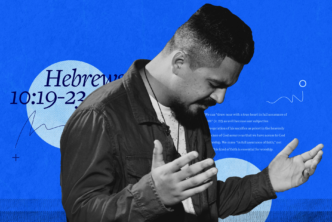Brevard Childs and Julius Wellhausen are two of my intellectual heroes. But they do not get along—so to speak.

On the one hand, I have taken encouragement from Childs. A biblical theologian of the twentieth century, Childs is best known for his “canonical approach” to reading scripture. This interpretive program is at once critical and confessional: it honors the achievements of critical scholarship on the Bible, and it also affirms the conviction of Christian churches that the Bible is the premier “site” of God’s self-disclosure. Childs’s signature contribution is to braid these two into a coherent whole—by discerning the latter theological belief deep down at the roots of the Bible’s formation process.
In so many words, Childs argued that “canon” drove the emergence of scripture: long before lists of sanctioned holy writings were drawn up or the texts and traditions of the Bible had reached any degree of fixity, Childs proposed that some circles in ancient Judaism transmitted and curated various texts out of a specific belief. They held that these texts would mediate the voice and will of their God to situations and generations well beyond their first contexts. This belief Childs called “canon-consciousness.” His approach has exercised a decisive influence on recent initiatives in English-language theology that operate under the heading “theological interpretation of scripture.”

On the other hand, I have not yet moved on from the compelling intellectual clarity of Julius Wellhausen. This nineteenth-century historian and biblical scholar is nearly synonymous with the “documentary hypothesis,” a taxonomy of Pentateuchal sources popularized by the acronym “J.E.D.P.” (Jahwist, Elohist, Deuteronomist, Priestly). Yet Wellhausen himself saw this sort of literary dissection as a “game of skittles,” of peripheral interest; his more pivotal claim concerns the religious history of Israel. Wellhausen divided that history into a stark before and after: the caesura, as he envisioned it, was the Torah, the Law of Moses. Before the rise of the Law, Israelite religion had been earthy, local, unlettered, and more or less pagan. YHWH was the divine benefactor and protector of Israel, functionally on par with the Moabite patron god, Chemosh. Then in the wake of the eighth-century prophets like Amos, a radically different, conditional theological vision took hold. YHWH could turn away from Israel. Indeed, he would destroy them unless they enacted justice. Such beliefs would, in time, eventuate in the Pentateuch’s distinctive profile of God. The Law followed the prophets, epitomizing and systematizing their theological revolution.
Childs lived downstream from Wellhausen, and he accepted many of Wellhausen’s insights about the literary sources of the Pentateuch. But he always and everywhere denied Wellhausen’s basic two-part plotline of Israel’s religious history. My article seeks to determine why. On what grounds—theological or historical—did Childs reject Wellhausen’s thesis? And must the contemporary movement for “theological interpretation” follow suit? Because I hope the answer to the second question is “no,” this article also makes a few constructive proposals: it lays out three routes for thinking Childs and Wellhausen together—i.e., for my intellectual heroes to get along after all.
Cambridge Core is offering free access to Collin’s article, “A Sharp Break: Childs, Wellhausen, and Theo-referentiality”, in Harvard Theological Review until 20th June 2019.

This article was first published at Cambridge Core on May 20, 2019.
]]>



